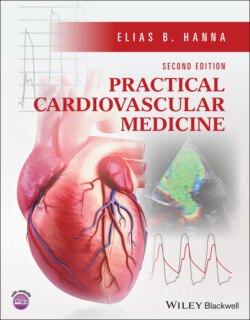Читать книгу Practical Cardiovascular Medicine - Elias B. Hanna - Страница 207
In sum, ISCHEMIA trial shifts 2 paradigms in stable CAD:
Оглавление1 Revascularization: in stable CAD, revascularization does not reduce mortality or MI even in extensive CAD and severe ischemia (the only exclusion being left main disease).
2 Diagnostic strategy: this trial questions the value of functional stress testing in the management of stable CAD and rather emphasizes the value of anatomical rule-out of left main disease via CTA. Even invasive coronary angiography is not routinely necessary after a severely abnormal stress test, which is a paradigm shift. CTA takes a more central role.
CKD patients in ISCHEMIA-Only patients with CKD did not undergo CTA (GFR 30-60 ml/min/1.73 m2 in main ISCHEMIA trial, and GFR<30 ml/min/1.73 m2 or dialysis in ISCHEMIA-CKD trial).19 CKD patients were randomized to a conservative strategy straight after moderate/high-risk stress testing, without any coronary imaging to rule out left main disease, yet they had a similar death/MI outcome vs invasive strategy. Invasive strategy increased stroke and requirement for dialysis in ISCHEMIA-CKD trial and appeared particularly harmful in stage 4 CKD, wherein it also increased death.76 Despite their very high risk, ISCHEMIA-CKD patients did not benefit from revascularization (cardiac mortality ~27% at 2.2 years).
All the above 4 trials (COURAGE, FAME 2, BARI 2D and ISCHEMIA) included patients with stable symptoms that are reasonably controlled with medical therapy, not ACS, not daily angina (~excluded in ISCHEMIA), and not angina on short walks. In those patients, revascularization does not improve death or MI even if ischemia is severe or CAD is multivessel. Severe, refractory symptoms and ACS remain appropriate indications for coronary angiography and revascularization. PCI is superior for angina relief and is particularly helpful in patients with severe functional limitation, and in patients with angina and a combination of low heart rate/low blood pressure, whose myocardial demands are inherently low (low rate-pressure product) and whose angina is mainly driven by the severe stenosis rather than hemodynamic variables.73,77
Furthermore, it is unclear if PCI improves survival in patients with left main or extensive multivessel disease who would derive a survival benefit from CABG, but who are not candidates for CABG or whose SYNTAX score is ≤22. By extrapolating the results of CABG vs. PCI trials, PCI is presumed to improve survival in those patients (PCI and CABG are associated with equivalent survival in select patients with multivessel or left main CAD); this has not been directly proven.
